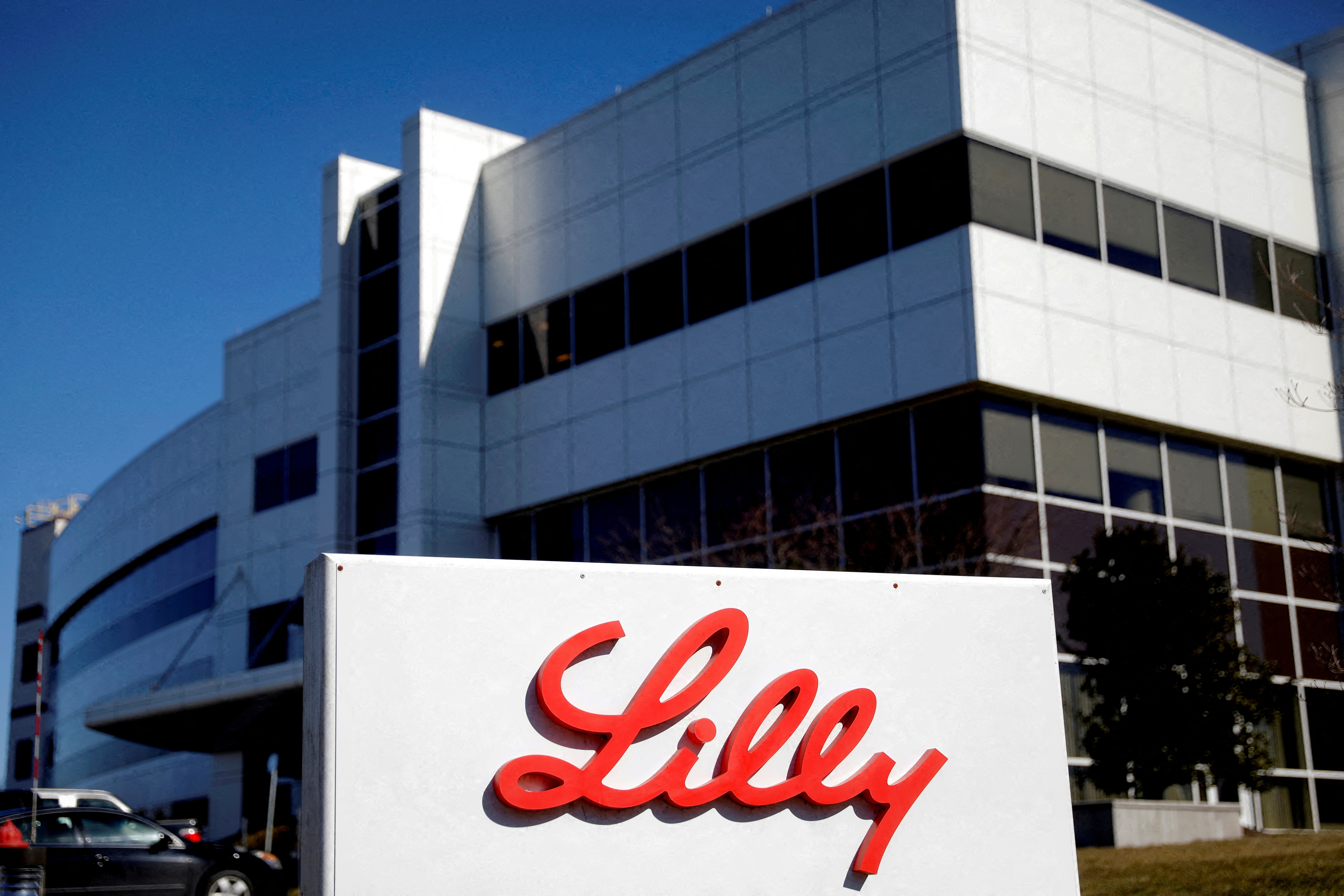[ad_1]

An Eli Lilly and Company pharmaceutical manufacturing plant is pictured at 50 ImClone Drive in Branchburg, New Jersey, March 5, 2021. REUTERS/Mike Segar/File Photo Acquire Licensing Rights
BERLIN, Nov 15 (Reuters) – U.S. pharma company Eli Lilly (LLY.N) plans an investment in the single-digit billion dollar range in a new plant in western Germany, people familiar with the matter told Reuters after the company called a news conference for Friday.
The project will be fully funded by the medicines giant, which has experienced surging demand for diabetes drug Mounjaro, now also being used off-label for weight loss. No details were available on what the plant would produce.
“It’s about an investment in the single-digit billion range,” said a source familiar with the plans for the proposed new plant, which will be in the state of Rhineland-Palatinate on the French border, adding that it would need large numbers of skilled workers.
The U.S. company, which has been present in Germany since 1960, already has 1,000 employees in the country.
Eli Lilly said it would unveil “far-reaching investment plans” at Friday’s news conference, which will be attended by Germany’s economy and health ministers.
The announcement looks to be a win for the German government, which is keen to show that Germany remains an attractive manufacturing location despite soaring energy prices caused by the loss of Russian gas following Moscow’s invasion of Ukraine.
Other recent investments in the country, including chip plants by the U.S.’s Intel and Taiwan’s TSMC, were won with the promise of massive public subsidies, making Lilly’s fully-funded investment potentially a more positive story for the government.
Mounjaro’s success helped Lilly post a 37% gain in third-quarter revenues to $9.5 billion, topping Wall Street estimates.
The group’s market value has ballooned to around $580 billion, up more than 65% so far this year.
The drug is likely to be approved for wider used against weight loss in the European Union after the bloc’s drugs regulator recommended market clearance.
But market prospects in the obesity indication in Germany are uncertain because state health insurance is barred from paying for weight-loss drugs. Non-diabetic patients with a prescription for weight-loss will likely have to pay out of their own pockets.
Indianapolis-based Eli Lilly and Danish rival Novo Nordisk (NOVOb.CO) are ahead in a race to grab a slice of an estimated $100 billion global market for anti-obesity treatments from a class of drugs originally developed for diabetes known as GLP-1 agonists.
Lilly has also been a pioneer in developing a treatment for Alzheimer’s disease, where it is in a tight race with a partnership between Eisai (4523.T) and Biogen (BIIB.O),
It has said it expects the U.S. Food and Drug Administration to decide by the end of this year whether to approve its new Alzheimer’s drug donanemab and submissions to other global regulators are underway.
Reporting by Rene Wagner, Klaus Lauer and Ludwig Burger, writing by Thomas Escritt; Editing by Chizu Nomiyama and Jane Merriman
Our Standards: The Thomson Reuters Trust Principles.
[ad_2]
Source link
